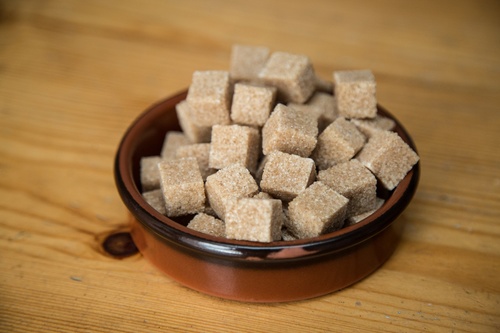Is Brown Sugar Bad For You?
Short answer
Brown sugar is bad for you in excessive amounts. Brown sugar is simply white sugar combined with molasses. The effects of consistent sugar consumption can be devastating for your health.
Recommended Alternative
Harmful to your health. Very few, if any, benefits are present. Things in this category should be avoided as much as possible.
View Full Grading System
Category 'A'
Very healthy and numerous health benefits. Side effects are rare. Things rated an 'A+' are typically necessary for survival (for example, water).
Very healthy and numerous health benefits. A few harmful qualities may be associated, but only under certain circumstances such as an allergic reaction.
Very healthy and numerous health benefits. Harmful qualities may be associated, but aren't usually serious.
It is important to note that even the best things in life can become bad in immoderate amounts. So, although something may be rated an 'A+', overconsumption/overdoing can bring unwanted effects.
Category 'B'
Very beneficial to your health. Things rated a 'B+' may have a few harmful qualities to pay attention to.
Overall beneficial to your health. Things rated a 'B' may have some harmful qualities to pay attention to.
More beneficial to your health than not. However, harmful qualities are most likely associated and shouldn't be overlooked.
The main difference between category 'A' and category 'B' is the harmful qualities typically present in 'B' items. Serious side effects are usually uncommon, but are still possible and should be taken note of.
Category 'C'
Both beneficial and harmful qualities associated. Things rated a 'C+' are typically a bit more on the beneficial side. Still, moderation is important.
A fairly even ratio of beneficial and harmful qualities. Moderation is important. Very general topics that can lean towards both sides of the spectrum will be placed here as well. Rice, for example, can be good or bad depending on the type.
More harmful than beneficial. Side effects are common, especially when consumed/done excessively. Moderation is very important.
Category 'C' usually denotes to both good and bad qualities. When it comes to this category, it is important to keep this word in mind: moderation.
Category 'D'
Harmful to your health. Although benefits may be associated, the bad most likely outweighs the good. Moderation is very important.
Harmful to your health. A few benefits may be associated, but the bad outweighs the good. Moderation is extremely important.
Harmful to your health. Very few, if any, benefits are present. Things in this category should be avoided as much as possible.
Category 'D' is typically for things that are more harmful than beneficial. While consuming/doing something unhealthy once in a blue moon shouldn't hurt, we definitely recommend eliminating 'D' items as a regular part of your routine/diet.
Category 'F'
Category 'F' is for things that fail to bring anything beneficial to the table, and are very harmful to your health. We recommend completely avoiding anything in this category. Long-term side effects of 'F' items are usually very serious.
Category 'N'
'N' stands for neutral. Things placed into this category are generally (a) neither good nor bad for you, or (b) lack the necessary evidence to reach any conclusions.
Long answer
Brown sugar is simply granulated white sugar that has been refined to remove the naturally-occurring molasses. During the processing, an increased amount of molasses is added back into the sugar, providing a difference in the consistency of brown sugar from any other type of sugar. Brown sugar is similar in consistency to wet sand, making it ideal for baking.
Some may argue that brown sugar is better for you than white sugar. Technically it is true that pure molasses contains a small amount of nutrients, such as calcium. However, the amount of added molasses present in brown sugar is so small that these nutrients are unlikely to have a significant effect on your health. Thus brown sugar—which has the same amount of calories as white sugar in any serving volume—is hardly better than white sugar.
Brown sugar is marketed in two shades, light and dark, the difference being the amount of molasses that has been added. Light brown sugar is generally used for baking cookies and cookie bars, as well as in liquid confections like butterscotch and icings. Dark brown sugar is used for items requiring a heavier molasses flavor, such as gingerbread, baked beans, and mincemeat.
In general, brown sugar has the same side effects as white sugar on your health. Frequent consumption of brown sugar can lead to increased risk of weight gain, heart problems, cancer, inflammation, diabetes II, and other chronic conditions. Indulging in brown sugar occasionally will not devastate your health—though it should be avoided as a diet staple!
Possible short-term side effects
- increase in heart rate
-
increased blood pressure
-
blood sugar spike
-
increased insulin production
-
increased fat storage
-
inflammation
-
hyperactivity
Possible long-term side effects
- obesity
-
inflammation
-
high blood pressure
-
heart disease
-
diabetes ii
-
cancer
Ingredients to be aware of
Benefits
- improved taste
-
great texture for baking
-
boost in energy
Healthier alternatives
- organic, plain molasses
-
organic, locally made honey
-
naturally sweet foods, such as fruit
Our Wellness Pick
(what is this?)
Wholesome Organic Coconut Sugar
- Unrefined sweetener
- Non-GMO
- Gluten-free
- Organic certified
- Low-glycemic index
Learn More!
Please turn your Ad Blocker off to see this content. Thank you!
Thank you for your feedback!
Written by DeeAnne Oldham
Published on: 07-18-2016
Last updated: 12-15-2023
Thank you for your feedback!
Written by DeeAnne Oldham
Published on: 07-18-2016
Last updated: 12-15-2023

 Approved by
Approved by 















